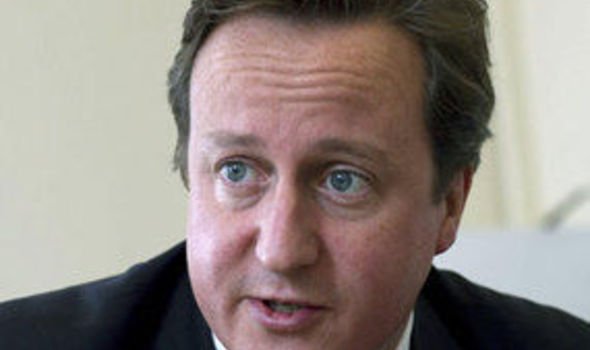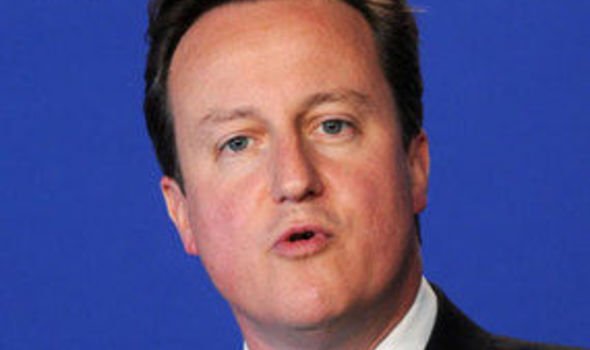A senior aide to David Cameron says he has ruled out a referendum on EU membership Sunday August 7,2011 A SENIOR aide to David Cameron says the Prime Minister has ruled out a referendum on EU membership because Britain delivered a “very clear result” on the issue 36 years ago. In an extraordinary letter described last night as “ridiculous and insulting”, Laurence Mann, Mr Cameron’s political private secretary, said the British people did not want another in or out vote because it would be “artificial and simplistic”. Instead, he said Britons should be grateful for the EU’s “useful work” on global warming and global poverty and stand by a decision made almost two generations ago on the far less federal body known as the Common Market. Writing on behalf of the PM, he said: “These are compelling arguments why we believe Britain should be an active member.” His letter was sent to Anita Segar, a senior Conservative Party member in Mr Cameron’s home county of Oxfordshire and president of the Society for Graduates at Oxford University. She had written to the Prime Minister last month threatening to resign from the party in protest over his “betrayal” to fulfil manifesto pledges and demanding a referendum. She urged him to “stand up to the imperious, bombastic and arrogant pirates in Brussels” who are “plundering what remains of our heritage”. Mr Mann, who is part of Mr Cameron’s inner circle, said there were “strong counter arguments” against the vote, adding: “We had a referendum on that issue in 1975, which produced a very clear result. There is also one argument, in particular, against holding such a referendum that we find irrefutably powerful, namely that most people in our country want to say neither ‘yes’ to everything from the EU, nor ‘no’ to everything. “The EU is not a matter of everything or nothing. We have, in the past, done well in ensuring that Britain can participate in the collective good carried out by the EU, such as free markets, while keeping out of things that we believe would be bad for our country. “For example, we are not part of the Schengen Zone but we have kept control of our own border controls, just as, crucially, we have kept the pound. “We should not lose sight of the EU’s very useful work, such as ensuring that all the nations of Europe are equipped to face the biggest challenges of the 21st Century: global competitiveness, global warming and global poverty. “These are compelling arguments for why we believe Britain should be an active member. Of course the EU has some serious failings too and there are certainly areas where its powers should be reduced. “A simplistic in/out referendum, posing an artificial choice that does not do justice to the range of views in the country, would be highly unlikely to settle the question of Britain’s membership of the EU at all.” However, Tim Montgomerie, the influential editor of the ConservativeHome website said yesterday: “It is both ridiculous and insulting for Cameron’s office to suggest the 1975 referendum means we don’t now need a vote. “For a start, anyone now aged under 53 was not able or eligible to vote in 1975. “Just as importantly the EU was then described as the Common Market or the European Economic Community. “Since then the Common Market has moved very substantially towards a political union.” To read the full text of Mr Mann’s letter, log on to sundayexpress.co.uk Click here for the Daily Express EU Referendum Crusade The full text of the letter sent by Laurence Mann, the Prime Minister’s political private secretary THIS is the full text of the letter sent by Laurence Mann, the Prime Minister’s political private secretary, to Conservative activist Anita Segar on July 20. Dear Ms Mann The Government has also introduced a European Union Bill, currently before Parliament, which will give Parliament and voters more say over important EU decisions. This new legislation will ensure that if, in the future, there is a change to EU Treaties that move a power or an area from the UK to the EU, the Government of the day will have to ask for the British people’s consent in a national referendum before it can be agreed. This ‘referendum lock’ ensures that politicians in Whitehall will never again be able to hand over more power to Brussels without asking the British people first.WHAT A PLONKER -
AS CICERO APTLY SAID 2000 YEARS AGO
TREASON FROM WITHIN
PM WILL NOT HAVE EU REFERENDUM

By Ted Jeory
UK NEWS
THE LETTER SENT BY DAVID CAMERON'S POLITICAL PRIVATE SECRETARY

I am writing on behalf of the Prime Minister to thank you for your letter of 12 July regarding our membership of the EU.
We understand the strength of feeling of some who would prefer us not to be in the EU at all and that, like you, would like an in/out referendum to take place. There are some perfectly respectable arguments in favour of holding such a referendum. But there are also many strong counter-arguments, such as the fact that we had a referendum on that issue in 1975, which produced a very clear result.
There is also one argument, in particular, against holding such a referendum that we find irrefutably powerful, namely that most people in our country want to say neither ‘yes’ to everything from the EU, nor ‘no’ to everything.
The EU is not a matter of everything or nothing. We have, in the past, done well in ensuring that Britain can participate in the collective good carried out by the EU, such as free markets, while keeping out of things that we believe would be bad for our country. For example, we are not part of the Schengen Zone but have kept control of our own border controls, just as, crucially, we have kept the pound.
And we should not lose sight of the EU’s very useful work, such as ensuring that all the nations of Europe are equipped to face the biggest challenges of the 21st Century: global competitiveness, global warming and global poverty. These are compelling arguments for why we believe Britain should be an active member.
Of course the EU has some serious failings too, and there are certainly areas where its powers should be reduced. But a simplistic in/out referendum – posing an artificial choice that does not do justice to the range of views in the country – would be highly unlikely to settle the question of Britain’s membership of the EU at all.
Rather, the government believes it much more effective to use the weight of our membership to negotiate and force positive change.
The Bill also places on a statutory footing the principle that Parliament is sovereign and that EU law only takes effect in the UK by virtue of the will of our own Parliament, expressed through Acts of Parliament.
Of course, in its first year in office this Government has been highly active on many other EU issues. We have made a good start in bringing the hitherto inexorable rise of the EU budget under control, saving taxpayers hundreds of millions of pounds. We have ensured that from 2013, Britain can no longer be liable from Eurozone bail-outs, another legacy from the Labour Government we have had to sort out.
And we are pushing forward measures that will be of benefit to Britain: making sure an EU-South Korea Free Trade Agreement was reached, which will mean big new opportunities for British businesses; and ensuring that the lifting of regulatory burdens on businesses, particularly small businesses, is firmly on the EU agenda. We have achieved a good deal in getting the countries of the EU to use their collective weight in the world effectively, such as on tough, targeted sanctions on Iran or action to help countries moving towards democracy in the southern Mediterranean.
The Prime Minister fully understands that our membership of the EU incites strong feels (sic) in many people. But I hope this goes some way to explaining why we believe that an in/out referendum would be highly unlikely properly to settle the question of Britain’s membership of the EU, and also how we are securing the best deal for British people through our active and positive membership, while ensuring that our national sovereignty is protected in the future. Please be reassured that the Prime Minister would never allow our country to slide into a federal Europe.
Yours sincerely
Laurence Mann
Sunday, 7 August 2011
Marcus Tullius Cicero
UK NEWS
Posted by
Britannia Radio
at
08:08
![]()





















